DOCKET THE

APRIL 11 - APRIL 13, 2024 • NAPA, CALIFORNIA

CONFERENCE ROOM



APRIL 11 - APRIL 13, 2024 • NAPA, CALIFORNIA


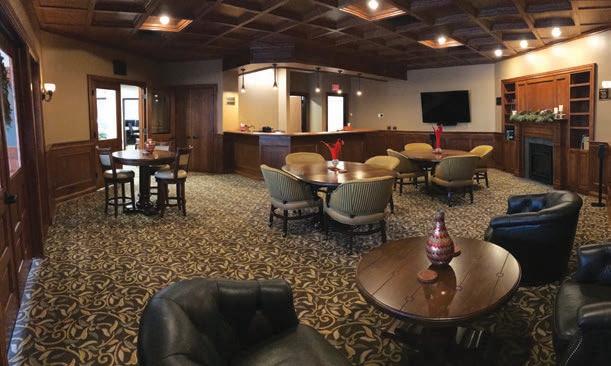
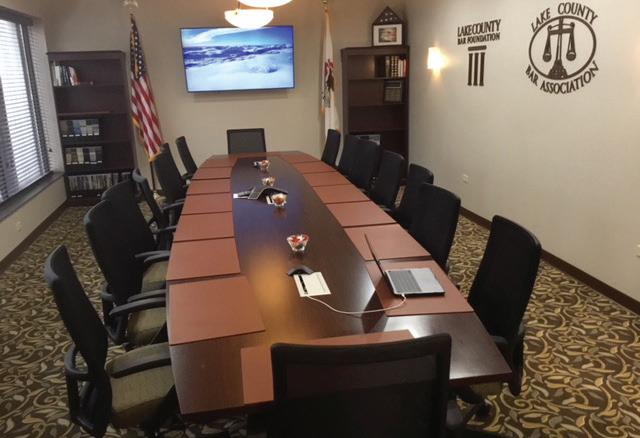

For meetings only. Seats 16 – 20 comfortably
During business hours (8 am – 5 pm)
• Member- Free
• Non-Member $150/1st hour. $50/hour after
• Non-Member, Not-for-Profit: $25/hour
After Hours (5 pm – 9 pm)
• Member - $25 per hour
• Non-Member – Not Available
• Non-Member, Not-for-Profit: $50 per hour
MEMBER CENTER “The Bar”
Accommodates up to 100 people
During business hours (8 am – 5 pm)
Members (add $25/hour for after hour events)
• Meeting only (individual or group, no food or beverages served: Free
• Self-Service reception or party (provide own alcoholic beverages): $50 per hour
• Hosted beer & wine reception or party (beer & wine provided by Association): $250/ 1st hour, $50/hour after
Non-Members: (add $50/hour for after hour events)
• Meeting only (individual or group, no food or beverages served): $50 per hour
• Self-Service reception or party (provide own alcoholic beverages and food): $300/ 1st hour, $50/hour after
• Hosted beer & wine reception or party – Not Available
Non-Member, Not-for-Profit: (add $25/hour for after hour events)
• Meeting only (individual or group, no food or beverages served): $25 per hour
• Self-Service reception or party (provide own alcoholic beverages and food): $150/1st hour, $25/hour after
• Hosted beer & wine reception or party – Not Available
Association Committee Meetings (Conference Room or Member Center)
Without beer & Wine - Free With Hosted Beer & Wine - $150 flat fee (for 5 – 15 people), $200 (over 15 people)
Room rentals are based on availability. Rentals include use of A/V already in room (phone, TV, Speaker. WIFI).
All rentals include free parking in our large, well-lit, 45 vehicle parking lot adjacent to the LCBA building.
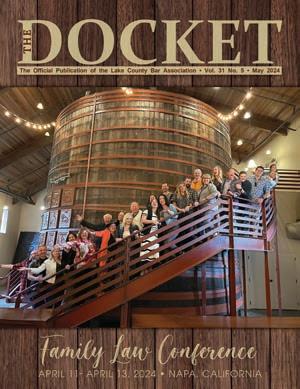
A publication of the
300 Grand Avenue, Suite A Waukegan, Illinois 60085 (847)244-3143 • Fax: (847) 244-8259 www.lakebar.org • info@lakebar.org
THE DOCKET EDITORIAL BOARD
Jeffrey A. Berman,Co-Editor
Hon. Charles D. Johnson,Co-Editor
Jennifer C. Beeler
Kevin Berrill
Hon. Bolling W. Haxall
Hon. Daniel L. Jasica
Hon. Christopher M. Kennedy
Jennifer Luczkowiak
Kevin K. McCormick
Shyama Parikh
Stephen J. Rice
Neal A. Simon
Hon. James K. Simonian
Rebecca J. Whitcombe
Alex Zagor
STAFF
Greg Weider
Executive Director
Jose Gonzalez
Assistant Executive Director
Nancy Rodriguez Receptionist
To place an ad or for information on advertising rates, call (847) 244-3143. Submission deadline: frst day of month preceding the month of publication. All submissions must be made in electronic format (high resolution PDF or JPG format at a resolution of 300 pixels per inch or more.) See www.lakebar.org/page/Docket_Advertising
The Docket is the offcial publication of the Lake County Bar Association, 300 Grand Avenue, Suite A, Waukegan, Illinois 60085 (847) 2443143, and is published monthly. Subscriptions for
are $45.00 per year.
Reproduction in whole or part without permission is prohibited. The opinions and positions stated in signed material are those of the authors and not necessarily those of the Association or its members.
All submitted manuscripts are considered by the Editorial Board. All letters to the editor and articles are subject to editing. Publications of advertisements is not to be considered as an endorsement of any product or service advertised unless otherwise stated.
As we navigate the complexities of the legal profession, it is crucial to remember the value of authenticity. In a feld often defned by rules and regulations, it’s easy to
Katharine Hatch
President
Danny Hodgkinson
First Vice President
Kevin Berrill
Second Vice President
Richard Gellersted
Treasurer
Jeffrey Berman
Secretary
Tara Devine
Immediate Past President
Hon. Jacquelyn Melius
Craig Mandell
Sarah Raisch
Jeffrey O’Kelly
Jeremy Harter
Judy Maldonado
Hon. Bolling Haxall
lose sight of our individuality. I believe that staying true to ourselves is not just important; It’s essential for our success and well-being. I leaned into authenticity after a former LCBA president and bulldog lawyer barked, “stop doing it our way, do it your way, write like the voice in your head”. It took me almost three years to truly understand that statement but once I did a weight was lifted and my practice improved dramatically. As a government employee for ffteen years, it was easy to feel like a cog in an overwhelming system until I began practicing with my own fare and unique style of lawyering. My results improved because I created solutions rather than accepting the standard solutions.
As lawyers we are entrusted with signifcant responsibilities, we advocate
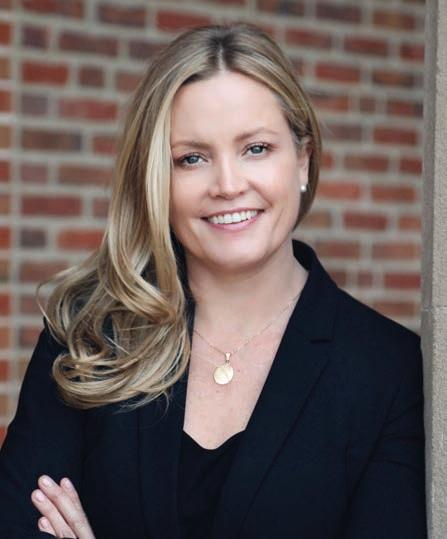
for justice, uphold the rule of law, and serve as stewards of our legal system. In fulflling these duties, it is easy to feel pressure to conform, to adopt a certain demeanor or approach that we believe is expected of us. However, I urge you to resist this temptation and embrace your authenticity. Why is authenticity so important? First and foremost, it builds trust. Our clients come to us seeking guidance, support, and expertise. They want to know that they can rely on us, not just for our legal knowledge, but also for our integrity and sincerity. When we are authentic in our interactions, we build stronger connections with our clients, fostering trust and confdence in our abilities. Our efectiveness as advocates is also enhanced because each of us brings unique perspectives, experiences, and strengths to the
BY KATHARINE HATCH PRESIDENTtable. When we embrace our authenticity, we tap into those strengths allowing us to advocate more passionately and persuasively on behalf of our clients. Our authenticity gives depth and credibility to our arguments, resonating with judges, juries, and opposing counsel alike.
Furthermore, authenticity fosters innovation and creativity. The legal profession is constantly evolving, and our ability to adapt and innovate is essential for success. When we feel free to be ourselves, we are more likely to think outside the box to explore new ideas and approaches to legal challenges. By embracing diversity of thought and encouraging individuality we can drive positive change in innovation within our profession.
Most importantly authenticity promotes our well-being and resilience.
The demands of the legal profession can be daunting leading to stress burnout and mental health challenges. When we suppress our true selves in an efort to conform, we sacrifce our well-being in the process. In contrast, when we honor our authenticity, we cultivate resilience and fulfllment in our careers. By staying true to ourselves, we can navigate the ups and

downs of our profession with greater ease and grace.
As my farewell, I encourage each of you to embrace your authenticity as lawyers. Be true to yourselves, your values, and your convictions. In doing so you will not only enhance your efectiveness as advocates but also promote trust, innovation and well-being within our profession.

Community Outreach & Diversity Committee Meeting
May 7

12:15 p.m.
Zoom
FLAG Committee Meeting
May 8



12:00 p.m.
Zoom Family Law Committee Meeting
May 15

12:00 p.m.
Zoom
Annual Membership Picnic
May 17
12:15 - 1:15 p.m.
Greenbelt Cultural Center North Chicago
2024 Civil Trial & Appeals Seminar
May 23
7:30 a.m.
Glen Flora Country Club Waukegan
2024 Installation Dinner
June 6
5:30 p.m Lake Forest Sports Car Lake Bluff
2024 Annual Golf Outing
June 27
11:45 am
Thunderhawk Golf Course Beach Park, IL



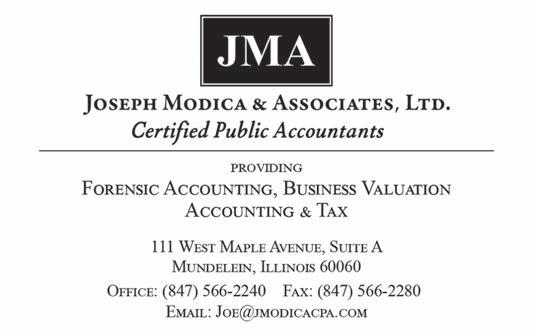




















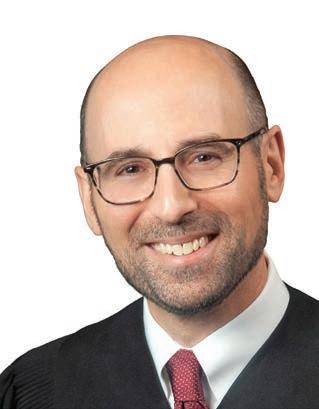 BY CHIEF JUDGE DANIEL B. SHANES
BY CHIEF JUDGE DANIEL B. SHANES
Spring is such a busy time around your courthouse and Lake County Bar Association.
Our Circuit Court was thrilled to present the 2024 Liberty Bell Awards at the April LCBA meeting. As you may recall, the Liberty Bell Award recognizes individuals and organizations for outstanding service and dedication to the administration of justice. This year’s recipients were Pamala Foster-King of the Department of Children and Family Services, and Mano a Mano.
Many of us have known Pam over the years from her work at DCFS and the Children’s Advocacy Center, but her lifetime career helping children and those in need began before that. Starting in 1988, Pam served as a substance abuse counselor and later as a caseworker in the homebound and
foster care unit of the Florida Department of Health and Rehabilitative Services. Moving to Illinois in the early 1990s, Pam worked in the private sector as a caseworker providing social services. In 1993, she began what would become a 31-year career at DCFS, dealing with many of the most difcult situations in both child protection and criminal cases.
For more than 35 years, Pam has unselfshly given of herself, personally and professionally, to improve the lives of many of the most vulnerable members of our community.
Formed in 2000, Mano a Mano Family Resource Center is a nonproft 501(c)(3) community-based organization with ofces now in both Round Lake and North Chicago. The organization is a result of a partnership between local legislators,
community leaders, and law enforcement who witnessed a signifcant need for the local growing immigrant community at the time to have linguistically and culturally relevant supportive services. Mano a Mano ofers a variety of resources and services, including health resources, educational classes and workshops, and immigration legal services. Its focus is on helping the hardest-to-reach and most vulnerable families and individuals in the community. The judges of the Nineteenth Circuit were proud to recognize both Pam Foster-King and Mano a Mano with the 2024 Liberty Bell Awards.
On May 3 we celebrated Law Day, a day of national dedication to the principles of government under law. The national 2024 Law Day theme “Voices of Democracy”
recognizes that in democracies, the people rule. The “Voices of Democracy” Law Day theme encourages Americans to deepen their understanding of the electoral process, discuss issues in honest and civil ways, turn out to vote, and help move the county forward after free and fair elections. Our Law Day celebration included many age-appropriate activities to engage kindergarten through high school students in these principles. Thank you to the many attorneys and staf who participated and assisted in so many ways, which made for such a meaningful and special event at the Courthouse.
Congratulations also to our very own Judge Michael Betar for being honored by the Arab American Bar Association of Illinois at its annual reception on May 9. Judge
Betar is a leader in the Illinois judiciary, and we are proud that he is receiving this great honor.
The month of May brings more activity in our Courthouse. On May 10, we will be hosting a small-claims mediation training. Thank you to all the attorneys who serve as mediators for small claims cases; you provide an invaluable service to both litigants and the court. If you have not served as a small-claims mediator but are interested, please take the plunge and sign up for the training. Mediation is a wonderful way to stretch your legs and serve our community in a new and rewarding way.
It is with mixed emotions that I share that two of our longest-serving friends and colleagues, Judges Ray Collins and Chuck Johnson, have submitted their letters of retirement from the bench efective July 12. Ray and Chuck have been integral parts of our judicial family for the past couple decades and will be sorely missed. At the same time, we are excited for them as they turn the page on a new chapter, have more
time for family and friends, and explore new and exciting opportunities. We look forward to celebrating Ray and Chuck’s judicial careers this summer.
As I hinted at last month, the Nineteenth Circuit welcomed our new court administrator, Executive Director Karl Walldorf, on April 29. Karl comes to us after a distinguished career in local government leading the Lake Forest Police Department. Although he is already a long-time member of the Lake County community, please join me in welcoming Karl to the courts.
Even with snow being a now-distant memory and baseball flling our thoughts, some say the real start of summer is the annual Lake County Bar Association membership picnic. This year’s picnic will be on May 17 at the Greenbelt Cultural Center. I look forward to seeing many of you there.
These are just some of the things happening at your courthouse. Looking forward to catching up more next month.


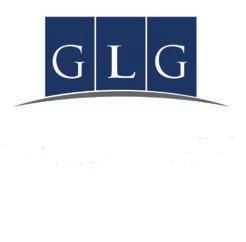
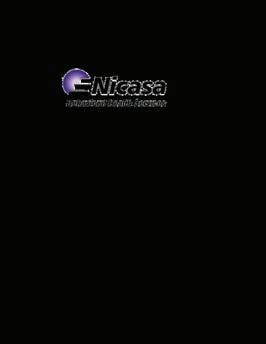
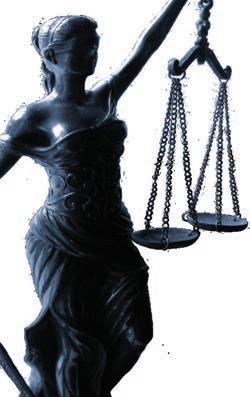
With nearly 25 years of experience, e Good Law Group has won cases at all levels of the claims process, including cases originally declined by the

May is the month of spring fowers, Law Day, graduations and other events as we launch into the summer months. Memorial Day is not only a court holiday, but also marks the unofcial beginning of summer.
Memorial Day was frst
BOARD OF TRUSTEES
Joann Fratianni
President
Kristie Fingerhut
Vice President
Perry Smith
Treasurer
Shyama Parikh
Secretary
Douglas Dorando
Immediate Past President
Jennifer L. Ashley
Nandia P. Black
Louise Hayes
Steven P. McCollum
Scott B. Gibson
David J. Gordon
Keith Grant
Fredric B. Lesser
Hon. Michael Nerheim
Michael Ori
John Quinn
Eric Reinhart
Melanie K. Rummel
David Stepanich
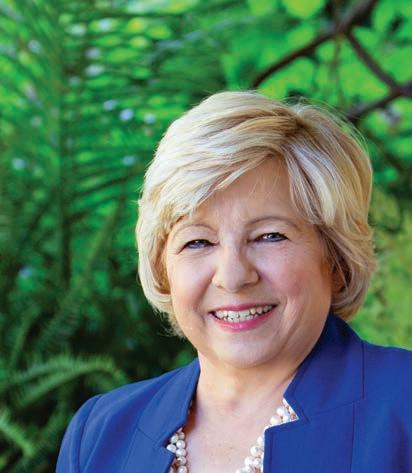
widely observed in Illinois in 1866 and occurred at Woodlawn Cemetery in Carbondale, Illinois. Three veterans of the Civil War decided to collect wildfowers and hold a parade where they decorated the cemetery with fowers. On Sunday, April 29, 1866, over 200 veterans participated in this inaugural ceremony. General John Logan, who was impressed by the observance in Carbondale, signed an order proclaiming May 30,1868, as a day to recognize fallen soldiers. At that time it was known as Decoration Day. The name Memorial Day became more popular during World War II, but it was not until 1967 that it became a federal holiday. The Uniform Monday Holiday Act took efect in 1971 and Memorial Day was moved to the last Monday in May.
Armed Forces Day is also celebrated in May and was instituted in 1949 to pay tribute to all branches of the United States Military.
The observance was formalized in 1961 when it was proclaimed to take place on the third Saturday in May in each succeeding year. It is a good idea to stop and remember our veterans on both those important dates.
The Nineteenth Judicial Circuit is again planning activities for Law Day, which is scheduled for May 1, 2024. The Lake County Bar Foundation is pleased to have provided funds for the prizes awarded to the various students who participate in the Law Day contests conducted by the Nineteenth Judicial Circuit.
Finally, the Lake County Bar Foundation was hon-
BY JOANN FRATIANNI PRESIDENTored to be a co-sponsor with the Community Outreach and Diversity Committee of the Lake County Bar Association in their Spring Food Drive. The event took place from April 1–4 and culminated with a reception at the Bar Ofce. The items accepted were in the form of monetary contributions as well as non-perishable items and were collected to beneft the West Deerfeld Township Food Pantry. The Lake County Bar Foundation was honored to be a co-sponsor for this event.
That’s all for now, and I hope you are looking forward to a great end of Spring and beginning of Summer.
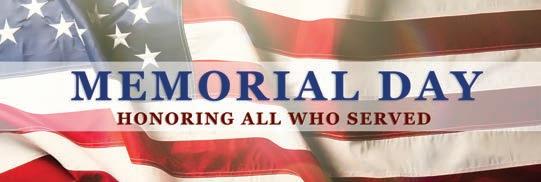
Our experienced escrow staff has a well-established reputation and understands the intricacies of Real Estate transactions.
At First American Title, we offer custom solutions for secure and stress-free closings, providing all the resources a FORTUNE 500® company has to offer. Who you close with matters. Trust the strength and stability of an industry leader.


Scan to nd an of ce location near you.
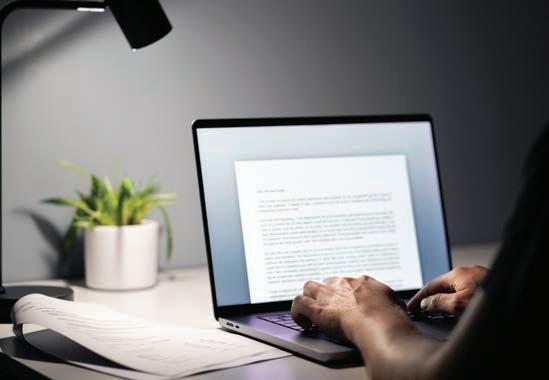
Alex and I share a common lineage, having spent part or most of our legal careers as Staf Attorneys with the Nineteenth Judicial Circuit. Back when Steve worked behind the judicial curtain, he worked with one other Staf Attorney.
The two of us had a good laugh one year about the court’s annual report. In it, our function was described as the “Research Unit,” of which there were two. Thereafter, my fellow staf attorney and I would regularly laugh about this appellation, often referring to each other as “Research Unit 5892” and “Research Unit 3921.” All kidding aside, the court’s “Research Unit” has doubled in size since my time (and Alex tells me they don’t assign each other numbers).
A Research Unit is not an AI bot (. . . yet . . .), but we share one thing in common with those bots: we are trained on a massive amount of data. In a Staf Attorney’s case, that data is in the form of legal briefs encompassing motions of all types. Motion after motion—in other words, the job exposes us in large measure to the hazardous substance of legal writing.
Professor Wayne Schiess1 has written that lawyers are professional
1 Professor Schiess blogs here: https://sites.utexas. edu/legalwriting/
Stephen J. Rice is an Assistant State’s Attorney in the Civil Division of the Lake County State’s Attorney’s Ofce. He was the 2019-20 President of the Lake County Bar Association.

writers, but that does not mean we are good writers. Mostly that is because we are hidebound to 100-year-old writing conventions. Why? Because we are all trained on a vast body of literature that inculcates bad habits. What next word will you write? Hint: it shouldn’t be “hereinbefore,” but that may indeed be the word that pops most readily to mind.
So one of the old R.U.s (me) and one of the current models (Alex) thought we might try to convey what we have learned reading 1,000s of briefs, writing 100s of memos, and just generally being lifelong students of legal writing, which we both are. What follows are a few tips for better legal writing. Importantly, we include citations to convey that these tips are not just our subjective preferences.
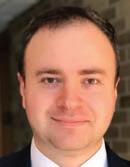
Alex Zagor is a Senior Staf Attorney with the 19th Judicial Circuit, where he assists the Court with the adjudication of complex civil and criminal matters. The views in this article are his own.
1. KEEP YOUR PROSE MOSTLY IN THE ACTIVE VOICE.
“Why was the road crossed by the chicken?” said no one ever. But we write like that quite frequently.
The passive voice, in which that frst sentence is written, is a grammatical way to write a sentence, but it is nevertheless stylistically poor in many cases.
Stylistic poverty becomes apparent when one passive sentence follows the next, and the next. Prose bogs down in passive voice. Active voice is easier to read and zippier. To again quote Professor Schiess, “Lawyers overuse [passive voice], and its overuse makes for wordy, dull writing.” 2
A passive construction almost always entails more words than its direct counterpart. And passive voice spotlights the object of a sentence, not the sentence’s subject, a.k.a. the sentence’s “actor.” Passive constructions can be a stylistic choice and a necessity when you don’t know who the actor is (e.g., my wife’s tulips were eaten—unclear by what). But passive voice is often simply the way sentences come out of our brains and onto the page. I am rather a passive-voice-elimination zealot, and even still passive constructions fow into my rough drafts with regularity.
does not mean you should eliminate all passive voice— you should not. But you should be conscious of your use of the passive voice, and then try to stay in active voice as much as possible.
Purdue’s excellent Online Writing Lab has more on this topic, if you need more: https://owl.purdue.edu/ owl/general_writing/academic_writing/active_and_passive_voice/index.html
…lawyers are professional writers, but that does not mean we are good writers.
Let’s briefy discuss what passive voice is. Here is a sentence with three passive constructions in it:
The indemnity clause sought to be enforced by the company was written by the company’s lawyer and will be construed against the drafter.
And here’s the same in active voice:
The company seeks to enforce an indemnity clause that its lawyer wrote, so we construe the clause against the drafter.
Grammatically, you can recognize passive voice if you look for a form of the verb “to be” (is/was/were/etc.) and the past participle (the past-tense form of a verb, like “crossed”). But an easier way to edit or identify a passive sentence is to ask this: WHO is doing WHAT?
The CHICKEN is crossing the ROAD. The COMPANY seeks to enforce.
The COMPANY’S LAWYER wrote. The brief was improved by the . . . NOPE! Rather: The lawyer improved the brief. Focus on staying in the active voice and you will improve your writing style by one full letter grade. This
2 https://sites.utexas.edu/legalwriting/2019/11/06/the-passivevoice-is-used-by-lawyers/
Also Google “passive voice exercise .edu” for countless college websites ofering practice opportunities. Educators know the value of this lesson, and so should you, dear professional writer!
2. USE IMAGES TO SUPPLEMENT PROSE. Modern word processing makes it simple to take images and place them right into your prose. I always look for the opportunity to “show” not “tell” where it makes sense to do so. It helps break up the endless reading judges and clerks must do; and it’s efcient: a picture may not save 1,000 words, but it often saves some.
For example, in cases where a location is important, show the location. People v. Clark, 406 Ill. App. 3d 622, 633 (2d Dist. 2010) (“case law supports the proposition that information acquired from mainstream Internet sites such as Map Quest and Google Maps is reliable enough to support a request for judicial notice.”). For a case involving the Lake County Jail, for example, a statement of facts included this image for the federal judiciary, which may not know our jail:
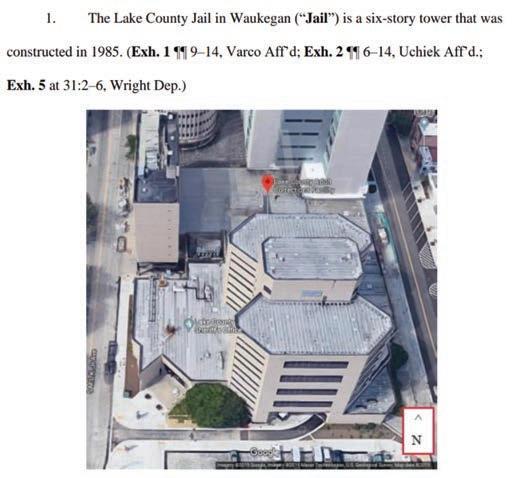
Here is a second example, where I did not want the court to have to leaf back to an exhibit, and then additionally cross-reference that exhibit with the statutory form. To the left of the dark line I included the statutory form; to the right was an image of how the tax buyer completed it:
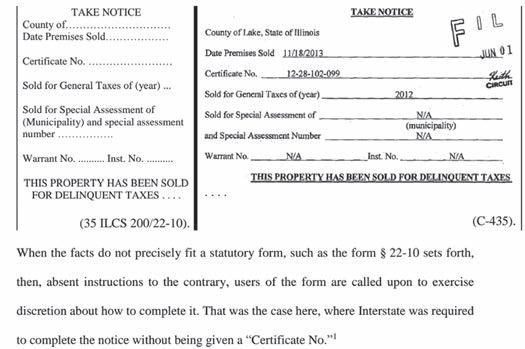
Often exhibits are long documents in which only a small snippet is relevant to the argument at hand. If you can bring the relevant snippet into your brief, you make the reader’s job easier.
3. WHEN TITLING A COURT SUBMISSION, CALL IT WHAT IT IS.
“A four-legged animal with fur and a tail, which meows.”
It’s a cat, man. Just call it a cat!
A few weeks ago I received a motion in which the entire frst page was the title of the document (in ALLCAPS). It was . . . a motion to dismiss.
The law is complicated enough without a decryption device needed to discern a document’s purpose. Just call it what it is. I always strive for one line, but will break it into two if it makes the title more readable still. In lieu of the full-page, allcaps title referenced above, here was my alternative:
While we’re on the topic of document titles, it’s important to call attention to another misguided practice: the overuse of generic pronouns when titling Response and Reply briefs. Here is one particularly egregious example taken from a real court brief:
COUNTER-DEFENDANTS’ REPLY TO COUNTERPLAINTIFFS’ RESPONSE TO HER COUNTERMOTION FOR SUMMARY JUDGMENT ON COUNTER-PLAINTIFFS’ COUNTERCLAIM
In a complex matter where multiple parties have fled dispositive motions at the same time (or where there have been multiple rounds of briefng on motions after pleadings were successively amended), such a title can actually
prevent the reader from seeing the brief’s connection to a specifc motion.
The pronouns above make the title of the document read like a gibberish-word-salad in the eyes of busy judges sifting through courtesy copies while plowing through countless other briefs in preparation for their upcoming contested motion call. Worse still, imagine how such a title might look to the eyes of a court clerk or staf attorney tasked with tracking down all of the briefs for a specifc motion in an unfamiliar case, especially if their only lifeline in the search is a case number and a months-old briefng schedule order. The better practice is to use the litigants’ actual names in the document title and to make certain that a response/reply brief can easily be tied to a specifc dispositive motion. For example:
XYZ’S REPLY IN SUPPORT OF ITS MARCH 29, 2024 MOTION FOR SUMMARY JUDGMENT ON COUNT II OF ABC’S SECOND AMENDED COUNTERCLAIM
And if it’s critical for a party to reiterate how it’s aligned with respect to other litigants (i.e. by explaining who is suing/countersuing whom and in what capacity), such relationships should be explained within the body of the brief. The title of a response/reply brief shouldn’t automatically be burdened with that kind of information.
4. USE REPLY BRIEFS ONLY TO ADDRESS OPPOSING ARGUMENTS IN A RESPONSE
Reply briefs should not recycle arguments from the movant’s opening brief and should instead address the arguments in the Response brief. Nor should Reply briefs be used to raise an entirely new argument that was omitted from a movant’s opening brief. Judges prepping for their motion call typically read all of the briefs for a particular motion (i.e. memo in support, response, and reply) in one sitting. So there’s no need for movants to waste valuable pages in their Reply by rehashing arguments that the judge just read in the movant’s opening memo. And newly raised arguments will stick out and likely annoy.
The prohibition on repeating arguments in a Reply is actually formalized at the appellate court level through Ill. S. Ct. R. 341(j), which states that “[t]he reply brief, if any, shall be confned strictly to replying to arguments presented in the brief of the appellee and need contain only Argument.” Equally important, Ill. S. Ct. R. 341(h)(7) states that “[p]oints not argued are forfeited and shall not be raised in the reply brief, in oral argument, or on petition for rehearing.” The 19th Judicial Circuit’s Local Rule 2-1.02(B)(2) for civil matters, Local Rule 4-1.02(B)(2) for family/adoption matters, and Local Rule 5-1.02(B)(2) for probate matters set forth similar restrictions on Reply briefs.
To the frustration of many trial judges, there are no such formal prohibitions on Reply briefs at the trial court level in the Supreme Court Rules, and lawyers may overlook such prohibitions in the local rules. Still, from a prudential standpoint, the rule that arguments are
waived if frst raised in a Reply brief is one that attorneys should observe. As one federal magistrate has written, such practice “is a forbidden tactic that is everywhere disallowed. The doctrine is deemed necessary to prevent ‘sandbagging.’” Lisa M. v. Kijakazi, 2021 WL 4804073, at *6 (N.D. Ill. Oct. 14, 2021) (string-citing many cases). This prudential rule resonates in our experience (and probably in yours, too). Trial judges hold a very dim view of movants attempting to ambush their opponents in this manner. Though court rules may not authorize forfeiture of a movant’s eleventh-hour argument raised in reply or at oral argument, the argument will likely not be viewed in a favorable light. In other words, it’s all but guaranteed to get a frosty reception. And good briefs studiously avoid frosting the reader!
The Seventh Circuit publishes Practitioner’s Handbook for Appeals 3 On pages 170-177, the court has an outstanding short section on style. What the Seventh Circuit writes applies right down to trial court judges, who may be less awash in text than an appellate court (but see: chancery), but who are still confronted by an ocean of material. Many lawyers seem committed to proving that it is only the substance of their briefs that matter, not how the brief is formatted. This is very wrongheaded, and remedying it does not require a lawyer to become a computer programmer. The Seventh Circuit writes:
In days gone past lawyers would send their work to printers, who knew the tricks of that trade. Now composition is in-house, done by people with no education in printing. Some tricks of that trade are simple to master, however, if you think about them.
Please check out the Seventh Circuit’s Handbook, pages 170-177. Those pages contain an excellent distillation of formatting best-practice guidance from around the legal writing universe. Consider this passage if you are not convinced this is worth the time investment:
The briefs, opinions of the district courts, essential parts of the appendices, and other required reading add up to about 1,000 pages per argument session. Reading that much is a chore; remembering it is even harder. You can improve your chances by making your briefs typographically superior.
It is worth the one-time investment of time to improve your brief formatting.
6.
Not long ago, an article by the First District’s Justice Hyman touched upon an undeniable reality in litigation
3 https://www.ca7.uscourts.gov/rules-procedures/Handbook.pdf (2020 Ed.).
when attorneys are arguing over points of law: “[T]he diference between winning and losing turns on the applicability, weight, and limitations of the authorities cited by the parties.”4 Of course the mere act of fnding applicable legal authorities is not enough to win a motion. To prevail, attorneys must ruthlessly parse those authorities and concisely present their analysis to the court in writing. Appropriate use of a string citation can often help in these tasks, even though many legal academics and judges might disagree with use of string cites out of principle (Justice Hyman among them).
Because court rules often set strict page limits on briefs, supporting a brief’s argument by writing out lengthy summaries of every applicable case is often not a good idea. Depending on the circumstances, it may be advisable to support a legal argument with a string citation that is prefaced by a signal and followed by explanatory parentheticals for each cite in the string. This can be the easiest way to concisely highlight a trend in case law, to distinguish a line of cases, or to simply provide the reader with a broad overview of cases on a particular topic. With practice, brief writers can easily identify opportunities to condense several paragraphs of case summaries into a single citation clause.
Here are two good examples.
(i) Illinois courts have ruled that police are not required to halt a custodial interrogation if a suspect is “indecisive” in his request for counsel. See, e.g., In re Christopher K, 217 Ill. 2d 348, 383 (2005) (“Do I need a lawyer?”); People v. Oaks, 169 Ill. 2d 409, 451 (1996) (“Should I see a lawyer?”);People v. Quevedo, 403 Ill. App. 3d 282, 293-94 (2nd Dist. 2010) (“Can the attorney come right now? Right this minute?”).
(ii) Even though the “natural accumulation” rule is usually raised by defendants in cases of slip-and-fall injuries caused by snow and ice, Illinois courts have also applied the rule in cases where the alleged injuries arose from other causes. See, e.g., Ahmed v. Pickwick Place Owners’ Ass’n, 385 Ill. App. 3d 874 (1st Dist. 2008) (mud/dirt); Pagelof v. Gaumer, 365 Ill. App. 3d 481 (3d Dist. 2006) (fallen walnuts); Bonavia v. Rockford Flotilla 6-1, Inc., 348 Ill. App. 3d 286 (2d Dist. 2004) (algae on a boat launch).
Using signals before the string citation — Accord; Contra; But cf.; E.g.; But see; See; Cf.; See also; Compare; See, e.g., — can help to prime a skeptical reader by quickly showing them the relevance of the string-cited cases to the writer’s argument. A comprehensive list and explanation of signals can be found in “Rule 1.2” of the Bluebook, but the Writing Center at the Georgetown University Law Center has a nice overview.5
Commentators have often suggested limiting string cites to no more than three cases, unless attorneys are attempting to showcase a split in authority on an issue.
4 Justice Michael B. Hyman, Inciteful Citations, 108 Ill. B.J. 40 (2020)
5 Or see this nice summary from the Writing Center at the Georgetown Uni. Law Center: https://www.law.georgetown. edu/wp-content/uploads/2019/08/BLUEBOOK-SIGNALS-EXPLAINED.pdf
String cites should also be used sparingly in a brief, and there are good reasons for this. Justice Hyman (among many others) cautions that many readers simply skip over them.6 Others have noted that long explanatory parentheticals (typical in a string cite) can diminish the readability of legal prose, because it will “bastardize paragraphs when the citations are interlarded within the writing.”7
While we have you thinking about citations: The Illinois Courts have a style guide8 for their opinions, and
6 Justice Michael B. Hyman, Inciteful Citations, 108 Ill. B.J. 40 (2020)
7 Bryan A. Garner, On Breaking Rules Learn the Fundamentals First-Experiment Later, A.B.A.J., July 2017, at 26, 27 (2017).
8 https://ilcourtsaudio.blob.core.windows.net/antilles-resources/ resources/7b9ea13e-26b6-4da7-b6de-68e4262133b2/supcrt_ stylemanual.pdf (5th Ed. 2017).
it says: “Parallel citations to the North Eastern Reporter (N.E. or N.E.2d) are not given for Illinois cases cited in supreme court opinions. Parallel citations for Illinois cases in the North Eastern Reporter may be given in appellate court opinions but are not required.” (emphasis added). And further: “Always cite Illinois’s ofcial reports” and for cases after 2011, use the “public domain” citation format, e.g., People v. White, 2011 IL App (2d) 109689, ¶ 139. Note that the year is built into that citation format— you do not need to repeat the year at the end of it.
No doubt our readers will have opinions of their own on the topic of good brief writing. In our profession, everyone’s a critic! We welcome your perspectives, especially if you point us to supporting authority. If you share some of those perspectives with us (no shouting please!), we will attempt to incorporate them into a future article.


Comprehensive Professional Liability Coverage
Optons for limits of liability and deductbles to fit your needs, to protect your firm, and to protect your clients
Practice Resource Center

Valuable informaton and resources to help you manage your practce
Free CLE
Both online and in-person events
Risk Management Helpline

Whether you have a potental liability issue, need advice on managing your practce, or an ethical queston…we are here to help


The Illinois Supreme Court is being asked to decide on the constitutionality of a new rule of Civil Procedure that says constitutional challenges to state laws and actions can only be fled in Cook or Sangamon counties.
The language of House Bill 3062 originated in the Senate and was inserted as a set of amendments into a House bill that originally dealt with landlord-tenant relations.1 As amended, House Bill 3062 added a new section to the Code of Civil Procedure, Section 2-101.5 (735 ILCS 5/2-101.5).
House Bill 3062 was passed by the General Assembly on partisan party lines. It passed the Senate on May 19, 2023, by a vote of 37-16.2 The House concurred with the amendments by a vote of 69-35.3 The Bill was signed into law by Governor
1 See Bill Status of HB3062, Illinois General Assembly Legislation website, available at https://www. ilga.gov/legislation/billstatus.asp?DocNum=3062&GAID=17&GA=103& DocTypeID=HB&LegID=148213&SessionID=112 (last visited April 8, 2024).
2 https://www.ilga.gov/legislation/ votehistory/103/senate/10300HB3062_05192023_119000T.pdf (last visited April 8, 2024).
3 https://www.ilga.gov/legislation/votehistory/103/house/10300HB3062sam003_05252023_012001C.pdf (last visited April 8, 2024).
Pritzker on June 6, 2023.4
As adopted, House Bill 3062 applies to cases brought against the state or any of its ofcers, employees or agents in which the plaintif seeks to have a law, rule or action declared unconstitutional or in which they seek an injunction on the grounds of constitutionality. It strips Circuit Courts in 100 of Illinois’ 102 counties, including Lake County, of their power to preside over such constitutional challenges. Previously, any party challenging the constitutionality of a law had the ability to fle a case in any of the state’s 25 judicial circuits. The law now limits those lawsuits to just Cook and Sangamon counties.

Jefrey Berman of the law frm of Bock Hatch & Oppenheim, LLC has extensive experience in commercial litigation, class actions and insurance coverage litigation in state and federal courts across the country. He is Co-Editor of the Docket and currently serves as Secretary of the LCBA Board of Trustees.
The bill reportedly came in response to a furry of lawsuits fled in recent years in courthouses throughout the state challenging such things as COVID-19 mitigation orders, the law that ends cash bail, and the state’s ban
4 https://www.ilga.gov/legislation/publicacts/ fulltext.asp?Name=103-0005 (last visited April 8, 2024).
on assault-style weapons and large-capacity magazines. Advocates of the bill argued it would lead to greater consistency and efciency in handling constitutional cases, while critics contended that it would undermine citizens’ rights and prevent fair access to justice.5
Senate President Don Harmon, who sponsored the bill in the Senate, argued that plaintifs selectively choose where to fle their cases in order to improve their chances of fnding judges who may be more sympathetic to their cause, a practice he described as “forum shopping.”6 He asserted the Attorney General’s ofce had complained that its resources were being stretched thin by having to defend those cases in courthouses scattered throughout the state.7
Case Number 23-LA-1129.11 In its Complaint, Plaintif sought a declaration that FIRA is unconstitutional and an injunction barring its enforcement.12
According to Plaintif, “Under HB0218, a dealer of frearms and frearm accessories, including Piasa Armory, LLC, may potentially be named in a civil action as a defendant by the Attorney General of Illinois for third parties misuse of frearms and frearms products.”13 However, Plaintif further averred, the Protection of Lawful Commerce in Arms Act, 15 U.S.C. § 7902, immunizes gun dealers from such claims.14
The law now limits those lawsuits (challenging the constitutionality of a statute) to just Cook and Sangamon counties.
Opponents, however, countered that limiting where people can sue the state to just two of the state’s 102 counties is “tyrannical.”8
Senate Republican Leader John Curran, of Downers Grove, also accused Democrats of engaging in their own brand of venue shopping by restricting constitutional challenges to courts in Springfeld and Chicago. “Courts exist to serve the people, which is why they are located where people live,” he said in a statement after Governor Pritzker announced the bill signing.9 “This legislation is clearly an attempt by the governor and the attorney general to send constitutional challenges to courts that they believe will be more favorable to the administration.”10
The case at issue involved a constitutional challenge to a recent gun law passed by the General Assembly, referred to as the Firearm Industry Responsibility Act (FIRA), which subjects gun dealers and manufacturers to civil penalties for violations of the state’s consumer protection laws.
Just days after FIRA took efect, on Aug. 17, Piasa Armory LLC, a dealer of frearms and frearm accessories located in Alton, fled suit in Madison County challenging its constitutionality. Piasa Armory, LLC v. Kwame Raoul, in his ofcial capacity as Attorney General of the State of Illinois, Circuit Court of the Third Judicial Circuit, Madison County,
5 Hancock, “New State Law Limits Venue for Illinois Constitutional Lawsuits to Sangamon, Cook Counties,” Capitol News Illinois, June 7, 2023, available at https://news.wttw.com/2023/06/07/ new-state-law-limits-venue-illinois-constitutional-lawsuits-sangamon-cook-counties (last viewed April 8, 2024).
6 Id.
7 Id.
8 Bishop, “Madison County judge fnds Illinois’ lawsuit venue limit law unconstitutional,” Illinois business Journal, March 14, 2024, available at https://www.ibjonline.com/2024/03/14/madison-county-judge-fnds-illinois-lawsuit-venue-limit-law-unconstitutional/ (last viewed April 8, 2024).
9 Hancock, supra
10 Id.
Plaintif also alleged that FIRA is void for vagueness for failing to properly specify what speech is targeted15 and it is inconsistent with the nation’s historical tradition16 In addition, Plaintif alleged that FIRA was unconstitutional in its entirety, and void ab initio, because its passage violated the so-called Three Readings Rule under the Illinois Constitution, Article IV, Section 8, which requires that a bill be read on three separate days in each chamber of the General Assembly before it may be passed.17
Further, in Count V of the Complaint, Plaintif also took aim at Section 2-101.5, urging the Court to maintain Madison County jurisdiction. In that regard, Plaintif alleged the Rule was enacted improperly to limit jurisdiction over constitutional challenges to Cook and Sangamon Counties because the state had been “successfully sued on multiple occasions in recent years for violating the constitutional rights of citizens of Illinois.”18
Plaintif asserted that the rule is “designed to limit Second Amendment and related challenges to forums that the state considers either more friendly to its position, or sufciently inconvenient to would-be plaintifs to deter such actions from being fled in the frst place, and abol-
11 See Complaint, Piasa Armory, LLC v. Kwame Raoul, in his offcial capacity as Attorney General of the State of Illinois, Circuit Court of the Third Judicial Circuit, Madison County, Case Number 23-LA-1129, included as part of Supporting Record to Defendant’s Motion To Dismiss Cross-Appeal For Lack Of Jurisdiction Or, In The Alternative, To Clarify That Briefng Will Proceed Under Rule 343(a), Piasa Armory, LLC v. Kwame Raoul, in his offcial capacity as Attorney General of the State of Illinois, Supreme Court Case Number 130539, at SR2, available at https://ilcourtsaudio.blob.core.windows.net/antilles-resources/ resources/04d1e891-6008-4d44-853d-dfc52ef390cf/130539_ MOT.pdf (last viewed April 8, 2024).
12 Complaint, Count I, p. 2, Count II, p. 3, Count III, p. 4.
13 Complaint, Count I, ¶ 4, Count II, ¶ 4, Count III, ¶ 4, Count IV, ¶ 4.
14 Complaint, Count I, ¶ 5.
15 Complaint, Count II, ¶ 5.
16 Complaint, Count III, ¶ 5.
17 Complaint, Count IV, ¶¶ 5-7.
18 Complaint, Count V, ¶ 5.
ishes forum non conveniens for those cases, no matter how inconvenient or inaccessible the forum is to the victim of the constitutional violation, and no matter where the efect of the Constitutional violation took place.”19
“In fact, one of the great crimes against the colonies of King George III, prior to the Revolution, as noted in the Declaration of Independence was, in essence, fxing venue in far of and inconvenient lands,” Plaintif further suggested. “The legal rights which a litigant might seek to exercise or protect exist only to the extent they are enforceable through the court system,” he added.20 “Depriving a litigant of the opportunity to use the courts efectively makes these legal rights worthless, which is the intent of the statute, so as to allow the state to violate the Constitution with relative impunity.”21 “By making forums far of and inconvenient, and with possibly no connection to the dispute, the challenged statute substantially increases the likelihood of an inability to bring a successful constitutional challenge, especially by the infrm and impoverished, the weakest among us,” it continued.22
Plaintif also averred that the Illinois Attorney General has satellite ofces throughout the entire state and regularly litigates in every Illinois county, meaning it is already intimately familiar with local rules and procedures and equipped to litigate in the preferred circuit court. “Therefore, any argument that requiring a plaintif to fle suits only in counties of Cook and Sangamon would grossly inconvenience the Attorney General has no basis in fact.”23
Plaintif requested that the Court declare Section 2-101.5 unconstitutional, and to enjoin the Defendant from challenging the venue of any action, or moving for a change of venue, based upon Section 2-101.5.24
By Motion to Transfer, the state sought to move the case to Sangamon County pursuant to Section 2-101.5(a).25 Unsurprisingly, in its combined Response to the Motion to Transfer, and cross-motion for summary judgment, Plaintif objected and argued that Section 2-101.5 should be overturned.26
19 Complaint, Count V, ¶ 6.
20 Complaint, Count V, ¶ 12.
21 Complaint, Count V, ¶ 12.
22 Complaint, Count V, ¶ 11 [sic].
23 Complaint, Count V, ¶ 15.
24 Complaint, Count V, pp. 8-9.
25 Defendant’s Motion to Transfer to a Proper Venue and Memorandum in Support of Defendant’s Motion to Transfer to a Proper Venue, dated Oct. 27, 2023, included as part of Supporting Record to Defendant’s Motion To Dismiss Cross-Appeal For Lack Of Jurisdiction Or, In The Alternative, To Clarify That Briefng Will Proceed Under Rule 343(a), Piasa Armory, LLC v. Kwame Raoul, in his offcial capacity as Attorney General of the State of Illinois, Supreme Court Case Number 130539, at SR11, SR14, available at https://ilcourtsaudio.blob.core.windows.net/ antilles-resources/resources/04d1e891-6008-4d44-853d-dfc52ef390cf/130539_MOT.pdf (last viewed April 8, 2024).
26 Response to Motion to Transfer Venue and Cross-Motion for Summary Judgment as to Count [V], dated Nov. 22, 2023, included as part of Supporting Record to Defendant’s Motion To Dismiss Cross-Appeal For Lack Of Jurisdiction Or, In The Alternative, To Clarify That Briefng Will Proceed Under Rule 343(a), Piasa Armory, LLC v. Kwame Raoul, in his offcial capacity as Attorney
In its ruling, Madison County Associate Judge Ronald Foster granted summary judgment for Plaintif, declared Section 2-101.5 is unconstitutional for plaintifs residing or injured outside of Cook and Sangamon Counties, and denied the motion to transfer.27
The court concluded that the Plaintif had demonstrated that both Sangamon and Cook Counties are inconvenient forums.28 As such, the law was unconstitutional as it applied to Plaintif because moving the case to Sangamon County would severely inconvenience the plaintif. “As applied to plaintif in this case, as a practical matter, transferring this action to Sangamon County will deprive it of the ability to put up its best challenge to the constitutionality of [FIRA].”29
The court also noted that Plaintif had shown that if the case were transferred, potential witnesses would have to travel to Sangamon County while, conversely, the state did not cite any witnesses from Sangamon County that it would call to the stand.30 And, relatedly, the court further concluded the state’s argument that it would be possible for Plaintif’s witnesses to travel to Sangamon County missed the point: “While it is indeed possible for witnesses to physically travel long distances, the issue at hand pertains to reasonableness and convenience, not mere physical capability.”31
The state also had argued that the availability of remote proceedings made Sangamon County convenient for both parties. The court was not convinced. Instead, the court found that even if the proceedings were to be conducted remotely via Zoom or any other videoconferencing platform, the state could just as easily participate in Madison County using the same remote means.32
Continuing its exposition, the court identifed three critical factors to be considered as part of its due process analysis, referencing the U.S. supreme Court decision in Mathews v. Eldridge, 33 which the Illinois Supreme Court used to frame its analysis of the venue statute at issue in Williams v. Illinois State Scholarship Commission, 34 namely: (1) the government’s interest in the procedure, including the function involved and the fscal or administrative burdens that the additional or substitute procedure would
General of the State of Illinois, Supreme Court Case Number 130539, at SR49, available at https://ilcourtsaudio.blob.core.windows.net/antilles-resources/resources/04d1e891-6008-4d44-853ddfc52ef390cf/130539_MOT.pdf (last viewed April 8, 2024).
27 Order dated March 4, 2024, included as part of Supporting Record to Defendant’s Motion To Dismiss Cross-Appeal For Lack Of Jurisdiction Or, In The Alternative, To Clarify That Briefng Will Proceed Under Rule 343(a), Piasa Armory, LLC v. Kwame Raoul, in his offcial capacity as Attorney General of the State of Illinois, Supreme Court Case Number 130539, at SR214, available at https://ilcourtsaudio.blob.core.windows.net/antilles-resources/resources/04d1e891-6008-4d44-853d-dfc52ef390cf/130539_MOT.pdf (last viewed April 8, 2024).
28 Order, pp. 4-7.
29 Order at p. 5.
30 Order at p. 5.
31 Order at p. 6.
32 Order at pp. 6-7.
33 424 U.S. 319, 334-35 (1976).
34 139 Ill. 2d 24, 41 (1990).
entail, (2) the private interest afected by the governmental action, and fnally (3) the risk of an erroneous deprivation of said interest through the procedures being contested and the probable value, if any, of additional or substitute procedural safeguards.
35
Considering the frst Mathews factor, the court found “the government interest here minimal at best.”36 According to the court, “Sangamon County is not more important than any other county in this state. The fact that it is the seat of state government is ultimately irrelevant. Based on the record before the court, the General Assembly will not be called as witnesses.”37 Further, the “Attorney General is responsible for representing the state and its ofcers in court in every county.”38 Therefore, the court concluded for these reasons, “transferring this action to Sangamon County would simply make it more difcult for the plaintif to prosecute its constitutional claims.”39
The court also concluded that the second Mathews factor (private interest) “strongly disfavors transfer.”40 While the court, “acknowledges without hesitation that the judges in Sangamon County would impartially handle this case, the reality remains that the greater the distance between the parties, witnesses, the sources of evidence, the more arduous it becomes to access the courthouse.”41 Likewise, the Court determined the third Mathews factor, the risk of erroneous deprivation, “again strongly disfavors transfer, for the [same] reasons.”42
Plaintif also had argued that Section 2-101.5(a) is unconstitutional because the bill enacting it violated the Three Readings Rule of the Illinois Constitution, alleging that the General Assembly took a shell bill intended to make a punctuation change to the Code of Civil Procedure, gutted it, and replaced all of its text with the frearm liability law.43 That process, according to the Plaintif, violated the Three Readings Rule. According to the court, the legislative history shows that House Bill 3062, “which became the Public Act in question, started out as a landlord tenant bill, ultimately passing out of the House as a landlord tenant bill. The bill, however, was amended in the Senate, by striking all reference to landlord tenant law, and replacing same with a new venue statute at issue herein. Once ‘gutted and amended,’ the statute was not read three times in the Senate, and as a venue bill, was not read three times in the House.”44 On its face, the court concluded, “this appears to violate the three readings rule, and possibly the single subject rule.”45
The court further concluded, however, that it was precluded from fnding for Plaintif on those grounds, based on
35 Order at p. 8.
36 Order at p. 9.
37 Order at p. 9.
38 Order at p. 9.
39 Order at p. 9.
40 Order at p. 9.
41 Order at p. 9.
42 Order at p. 9.
43 Complaint, ¶¶ 5-6.
44 Order at p. 10.
45 Order at p. 10.
existing Illinois Supreme Court precedent foreclosing such challenges.46 The court also observed “it is clear that plaintif intends to challenge existing law at a higher court.”47 Toward that end, the court clarifed “plaintif’s Three Readings Rule challenge is denied, and this court’s ruling in this case is in no way based upon the Three Readings Rule. If the precedent of the Supreme Court were diferent, this court would apply that precedent.”48
Because it concluded Section 2-101.5(a) violates due process for plaintifs who reside outside of Cook or Sangamon County, the court declared it unconstitutional and denied the state’s motion to transfer.49 The Court also included a Rule 304(a) certifcation.50
The circuit court’s decision has been appealed directly to the Illinois Supreme Court by both parties. The Attorney General’s ofce fled a notice of appeal on March 13, requesting that the Illinois Supreme Court “reverse and vacate the circuit court’s order to the extent it was adverse to him, and grant him any other relief deemed appropriate.”51
The Plaintif thereafter fled a Notice of Cross Appeal on March 14, asking the Supreme Court to “reverse the trial court to the extent that it found Section 2-101.5(a), … did not violate the three readings rule of the Illinois Constitution, and in said process, hold said act unconstitutional in its entirety, as opposed to merely as applied.”52 However, Plaintif also asks the Court to afrm the denial of the motion to transfer to Sangamon County.53
As of April 8, 2024, proceedings in the Illinois Supreme Court are still in their proverbial infancy. The Plaintif has not yet responded to state’s motion to dismiss the cross-appeal, nor has briefng on the merits begun. And while this case arises out of Madison County, it addresses a rule that affects 100 of the state’s 102 counties, and thus bears watching closely because its outcome will be felt state-wide, including in Lake County.
46 Order at p. 10.
47 Order at p. 10.
48 Order at pp. 10-11.
49 Order at p. 11-12.
50 Order at p. 12.
51 Notice of Appeal, dated March 13, 2024, included as part of Supporting Record to Defendant’s Motion To Dismiss Cross-Appeal For Lack Of Jurisdiction Or, In The Alternative, To Clarify That Briefng Will Proceed Under Rule 343(a), Piasa Armory, LLC v. Kwame Raoul, in his offcial capacity as Attorney General of the State of Illinois, Supreme Court Case Number 130539, at SR227, available at https://ilcourtsaudio.blob.core.windows. net/antilles-resources/resources/04d1e891-6008-4d44-853d-dfc52ef390cf/130539_MOT.pdf (last viewed April 8, 2024).
52 Notice of Cross Appeal, dated March 14, 2024, included as part of Supporting Record to Defendant’s Motion To Dismiss Cross-Appeal For Lack Of Jurisdiction Or, In The Alternative, To Clarify That Briefng Will Proceed Under Rule 343(a), Piasa Armory, LLC v. Kwame Raoul, in his offcial capacity as Attorney General of the State of Illinois, Supreme Court Case Number 130539, at SR242, available at https://ilcourtsaudio.blob.core. windows.net/antilles-resources/resources/04d1e891-6008-4d44853d-dfc52ef390cf/130539_MOT.pdf (last viewed April 8, 2024).
53 Id.
APRIL 11 - APRIL 13, 2024 • NAPA,
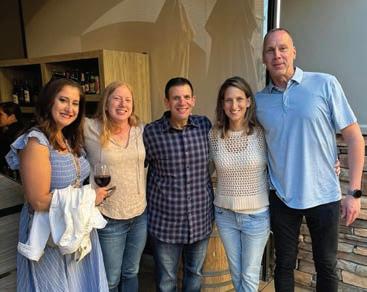
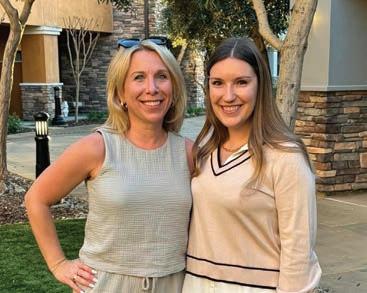
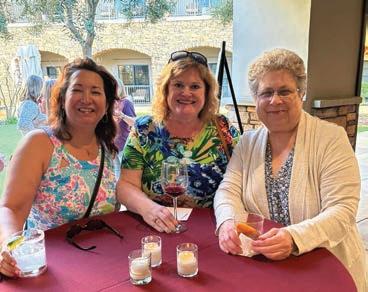
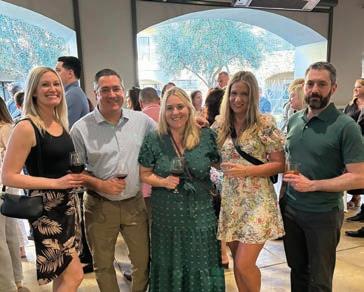
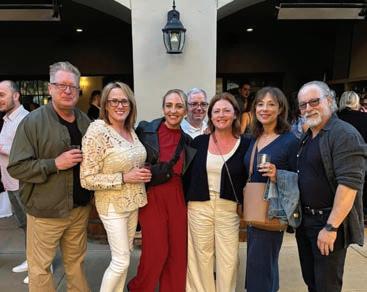
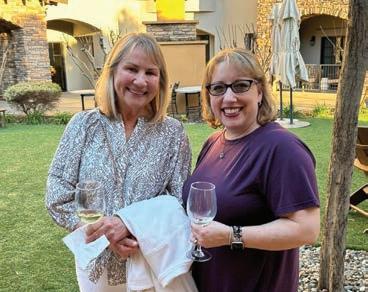
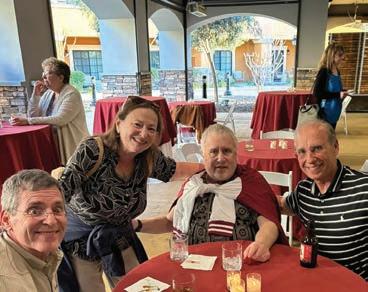
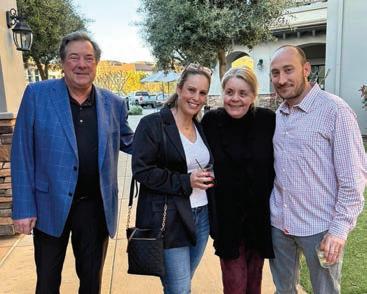
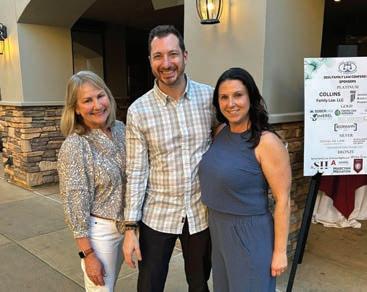
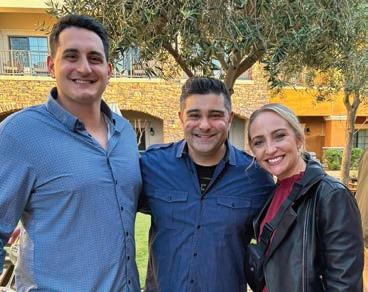
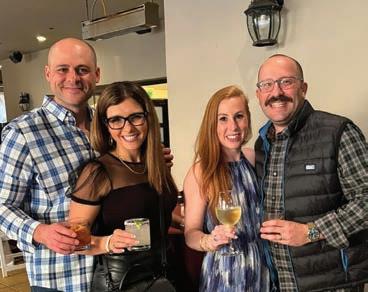
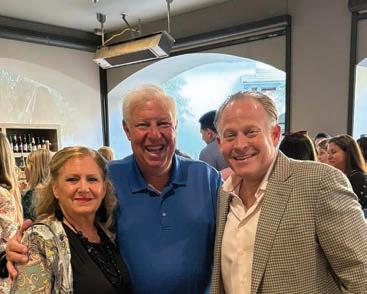
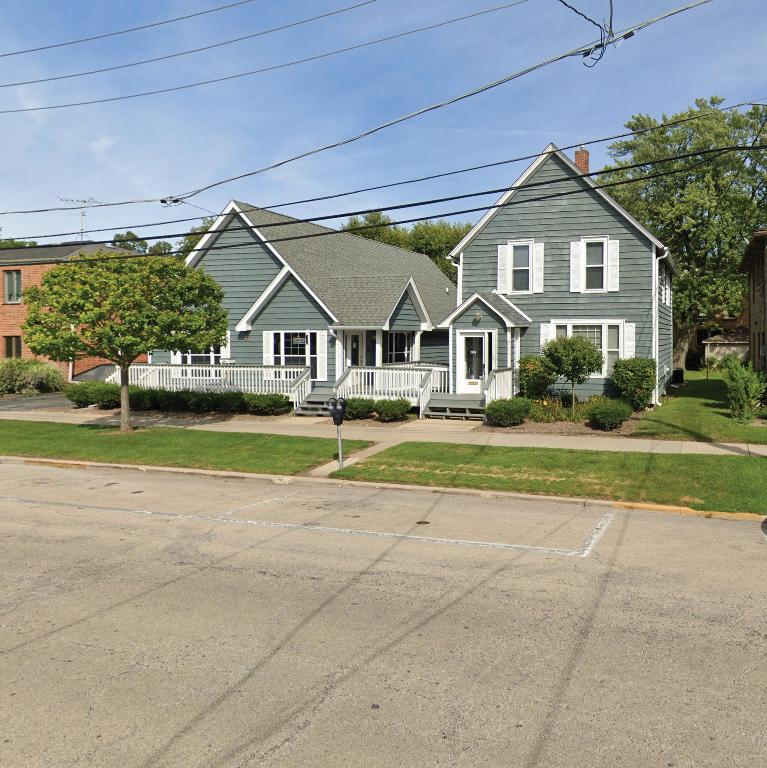
Terry Smythe and Jerry Lee have been practicing law together since 1975. They own two buildings, 207 and 211 N. Martin Luther King Jr. Ave., Waukegan, just a block from the Lake County Courthouse. There is a fourteen car parking lot, so off-street parking is not a problem. This could be an ideal office location for a court-oriented law practice.
The 207 building has two offices, a spacious work area, a restroom, and a small kitchenette on the first floor. There is also a spacious office/conference room on the second floor, a work area, and a restroom. The 211 building is a newer building and has three spacious conference rooms, a waiting area, a work area, and two restrooms. There is also a spacious full basement with lots of room for storage. The buildings are linked by a common porch/deck.
We will consider selling the buildings together or separately
February 20, 2024
Present: Joann Fratianni (President, in person), Kristie Fingerhut (Vice President, zoom), Perry Smith Jr. (Treasurer, zoom), Shyama Parikh (Secretary, zoom), Jennifer Ashley (zoom), Keith Grant (zoom), David Stepanich (zoom), John Quinn (in
BOARD OF TRUSTEES
Joann Fratianni
President
Kristie Fingerhut
Vice President
Perry Smith
Treasurer
Shyama Parikh
Secretary
Douglas Dorando
Immediate Past President
Jennifer L. Ashley
Nandia P. Black
Louise Hayes
Steven P. McCollum
Scott B. Gibson
David J. Gordon
Keith Grant
Fredric B. Lesser
Hon. Michael Nerheim
Michael Ori
John Quinn
Eric Reinhart
Melanie K. Rummel
David Stepanich
person), Honorable Michael Nerheim (zoom), Frederick Lesser (zoom), David Gordon (zoom), Scott Gibson (zoom), and Nicholas Riewer (in person). Also present was Greg Weider, Executive Director of the LCBA and LCBF and Kevin Berrill from the LCBA Executive Board.
I. CALLED TO ORDER:
Meeting was called to order by President Fratianni at 4:01pm, a quorum being present in person/zoom, at the LCBF ofce.
II. APPROVAL OF MINUTES:
Motion made to approve the minutes of the 12/21/23 meeting by Frederick Lesser and seconded by David Stepanich. Motion approved.
III. TREASURER’S REPORT:
Treasurer, Perry Smith Jr., reported the accounts are in a comfortable position. A large Cy Pres award was
 BY SHYAMA PARIKH SECRETARY
BY SHYAMA PARIKH SECRETARY
received from the Rosenbach v. Six Flags Lawsuit and two more checks are expected. Bank balances in the accounts, the line of credit, investment account monies and future monies expected were all reviewed, as well as the current debt on the mortgage. There will be upcoming expenses related to the furnace as there have been multiple visits to deal with the extreme heat and cold temperatures in the building.
WARRANT APPROVAL OF EXPENSES PAID: The Warrants for Expenses for December, 2023 and January, 2024 were presented for approval. Motion made by Nicholas Riewer to approve the expenses and was seconded by Jennifer Ashley. Motion approved.
IV. NEW BUSINESS:
A.
a. A follow up letter from the President of the Waukegan Historical Society, Lori Nerheim, was
received in early February. It outlined three levels of donorship and an opportunity to be listed on the donor wall at the new Waukegan History Museum at the Carnegie in downtown Waukegan. There was questions about input from the Foundation, deadlines to contribute, and what the exhibit would actual entail. A request will be made to Ms. Nerheim to come to our next meeting in order to further discuss the donation and to answer question. The Foundation may call a special meeting so deadlines are not missed. Motion made by Nicholas Riewer to contribute a minimum of $10,000 as a donor and was seconded by John Quinn. Motion approved. (Honorable Judge Nerheim and Perry Smith Jr. abstained).
b. A request for $600 was made to support Law Day. These monies would be for gift cards/prizes for the participants and has been something the Foun-
dation has supported in the past. Motion made by Nicholas Riewer to approve $600.00 for Law Day and seconded by Perry Smith Jr. Motion approved.
c. The Community Outreach and Diversity Committee is holding a Food Drive in April, 2024. The foundation will partner with them as it is part of their mission to donate and support these causes. Past food for the event has cost about $250 and donations have been about $600. Greg indicated the donations may increase this time if there is a matching amount from the Foundation. Motion made by Frederick Lesser to cover the cost of food and match what is donated, up to $1,000 for both food and the match, and was seconded by John Quinn. Motion approved.
B. Expiring Trustee Terms/Trustee Nominations: The Foundation Board will be losing Michael Ori, Jennifer Ashley, and John Quinn. Tara Devine will be joining the Foundation Board. Any recommendations for the Foundation Board should be sent to President Fratianni.
C. Fundraising Committee: The Battle of the Bands was led by Jennifer Ashley and David Stepanich. It was a successful event that raised almost $11,000 for the two benefactors, A Safe Place and North Suburban Legal Aid. Last year, about $13,000 was raised for one benefactor. Discussion took place to add monies this year for the two recipients. Motion was made by the Honorable Michael Nerheim to donate
$10,000 to A Safe Place and $10,000 to North Suburban Legal Aid, it was seconded by David Stepanich. Motion approved. (Shyama S. Parikh abstained).
D. Building Update:
The building property tax exemption was timely fled and should be granted for another year. Greg will provide the update when received.
E. CY Pres Award:
Discussion took place about what to do with the monies that were received. Items to consider are the outstanding mortgage, roof replacement, parking lot repair, donations, and other items. There are multiple factors that must be looked at before decisions can be made about spending this money and a discussion with the Accountant should also
take place. Scott Gibson made a Motion to create a subcommittee to explore globally all aspects of spending of the money and it was seconded by Nicholas Riewer. Motion approved. The subcommittee chair will be Scott Gibson and members will be Frederick Lesser, Nicholas Riewer, Keith Grant, and Kevin Berrill.
F. Miscellaneous:
The foundation will not hold the 50/50 rafe this year at the Gridiron based on the recent Fundraiser and number of Foundation Board members that will be occupied in the show and unable to sell the tickets. The Gridiron is on March 8th and March 9th, the Annual meeting will be on March 19th, and the Annual picnic will be on May 17th.
Motion to Adjourn was made at 4:56pm by Nicholas Riewer and was seconded by John Quinn. Motion approved. Next Meeting: April 16, 2024
Welcome
ATTORNEY
Maria Lamore Jackson, Buckley & Pfanenstiel, LLP
Corey Tallent Tallent Defense & Family, LLC
William Trabaris The Law Offce of Jonathan Merel, P.C.
PROFESSIONAL
Michelle Garibay Wintrust Mortgage

Thursday, March 21, 2024
Minutes of the regular meeting of the Board of Directors of the Lake County Bar Association held in the Executive Conference Room of the Lake County Bar Association, 300-A Grand Avenue, Waukegan, Illinois, on Thursday, March 21, 2024.
President Hatch called the meeting to order at 12:10 p.m.
Roll call indicated a quorum was established, with the following individuals present in person: Katharine Hatch, President; Daniel Hodgkinson, First Vice President; Kevin Berrill, Second Vice President; Richard Gellersted, Treasurer; Tara Devine, Immediate Past President; Hon. Bolling Haxall, Director; Craig Mandell, Director; Sarah Raisch, Director; Judy Maldonado, Director; Jeremy Harter, Director; and Greg Weider, Executive Director. The following individuals participated by Zoom videoconference: Jefrey Berman, Secretary.
• Consent Agenda Items
February 15, 2024
Board of Directors Meeting Minutes
The Draft minutes from the February 15, 2024, meeting of the Board of Directors was included in the agenda packet. There were no requests for other additions, corrections, or changes to the draft minutes.
New Members and Membership Report
The Membership Report and New Members Report as of March 15, 2024, was included in the agenda packet.
A motion was made and seconded to approve the Consent Agenda. Upon unanimous voice vote, the motion was declared carried. The Consent Agenda is approved.
The February 2024 Financial Report and supporting materials were included in the agenda packet. Treasurer Gellersted made a presentation regarding the February 2024 Financial Report. Discussion followed.
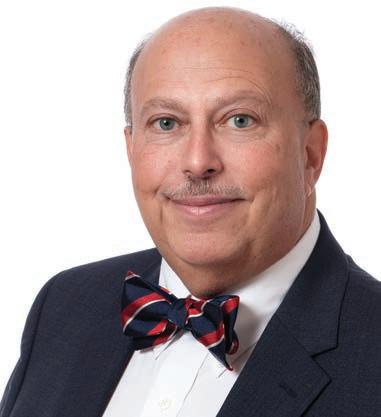 BY JEFFREY A. BERMAN SECRETARY
BY JEFFREY A. BERMAN SECRETARY
A motion was made and seconded to approve the Treasurer’s Report. Upon unanimous voice vote, the motion was declared carried. The Treasurer’s Report is approved.
None
NEW BUSINESS
• Member Satisfaction Survey Results
A report summarizing the results of the 2024 Member Satisfaction Survey was included in the agenda packet. Executive Director Weider made a presentation regarding the survey and the results. Discussion followed.
• LCBF
President Hatch and Executive Director Weider made a presentation concerning the LCBF Board Slate for 2024-25. The following individuals are nominated for reappointments as Trustees: Scott Gibson, David Gordon, Keith Grant, Fredric Lesser, and David
Stepanich. The following individual has been nominated for a new Trustee appointment: Tara Devine. All Ofcer positions are to remain the same. Discussion followed.
• Committee Liaison Reports
Board members provided Committee updates.
• Executive Director Report
Executive Director Weider presented his Executive Director Report for March, including an update on the website, committee attendance, CLE opportunities, upcoming seminars and other scheduled events.
A motion was made to adjourn. Upon unanimous voice vote, the motion was declared carried. The meeting concluded at 12:36 p.m. The next Board of Directors Meeting is scheduled to take place on Thursday, April 18, 2024.
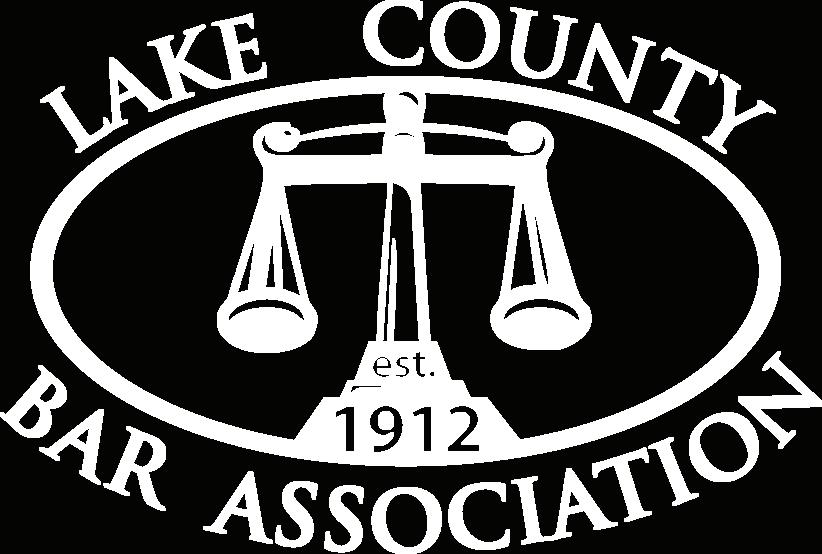


Thursday, March 19, 2024
Minutes of the Annual Meeting of the Lake County Bar Association held at Glen Flora Country Club, Waukegan, illinois, on tuesday, march 19, 2024.
BOARD OF DIRECTORS
Katharine Hatch
President
Daniel Hodgkinson
First Vice President
Kevin Berrill
Second Vice President
Richard Gellersted
Treasurer
Jeffrey Berman
Secretary
Tara Devin
Immediate Past President
Craig Mandell
Director
Jeremy Harter Director
Jeffrey O’Kelley Director
Sarah Raisch Director
Judy Maldonado Director
Hon. Bolling Haxall
Director
Greg Weider
Executive Director
President Hatch called the annual meeting of the Association to order at 12:26 p.m., due Notice having been given, in accordance with Article VII, Sections 1 and 4 of the Bylaws.
A number of members greater than the required fve percent of the Attorney Members were present at the outset of the meeting, and thus a quorum was established in accordance with Article VII, Sections 5b and 6 of the Bylaws.
President Hatch made opening remarks welcoming the attendees.
Election of the LCBA slate of Ofcers and Directors for 2024-25
President Hatch provided a recap of the slate promulgated by
 BY JEFFREY A. BERMAN SECRETARY
BY JEFFREY A. BERMAN SECRETARY
the Nominating Committee for the specifc Ofcers and Directors to be elected for 2024-25. The following individuals are included in the slate: Craig Mandell (Second Vice President), Jefrey Berman (Treasurer), Jef O’Kelly (Secretary), Karen Levi (Director, 3-year term), Jennifer Ashley (Director, 3-year term, Caryn Barone (Director, 2-year term). No additional nominations were received by Nominating Petition in accordance with Article IV, Section 1 of the Bylaws.
A motion was made by Judge Charles Johnson and seconded by Brian Lewis to elect the uncontested slate of Ofcers and Directors. Upon unanimous voice vote, as permitted by Article IV, Section 2 of the Bylaws, the motion was declared carried. The following individuals are elected: Craig Mandell (Second Vice President), Jefrey Berman (Treasurer), Jef
O’Kelly (Secretary), Karen Levi (Director, 3-year term), Jennifer Ashley (Director, 3-year term, Caryn Barone (Director, 2-year term).
PRESENTATIONS
Gideon’s Award
Lake County Public Defender Joy Gossman presented the Gideon’s Award to Sara Price.
Justice Robert H. Jackson Award
Lake County States Attorney Eric Rinehart presented the Justice Robert H. Jackson Award to Robert Money.
President Hatch made remarks concluding the meeting.
A motion was made to adjourn. Upon unanimous voice vote, the motion was declared carried. The meeting concluded at 12:52 p.m.






















16, 2024 • WAUKEGAN
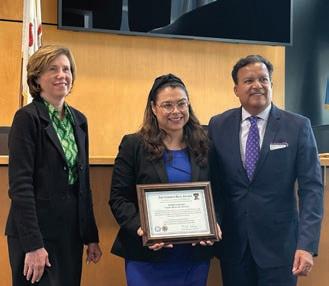



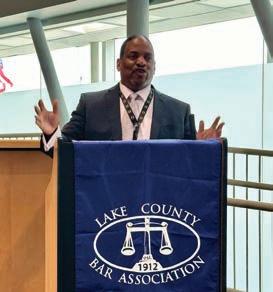









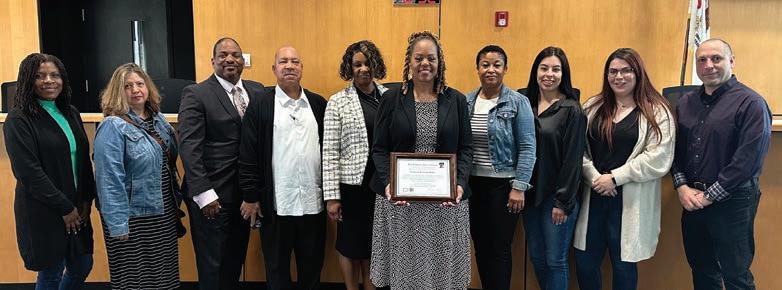





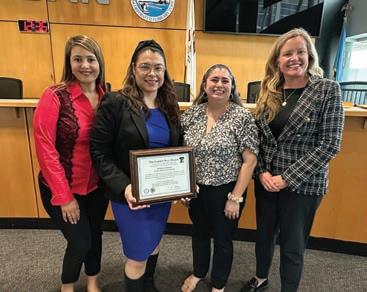



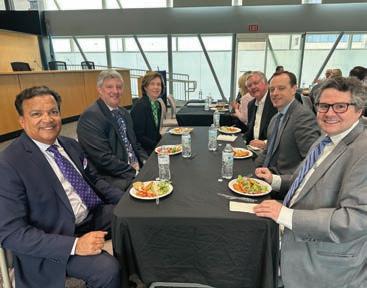

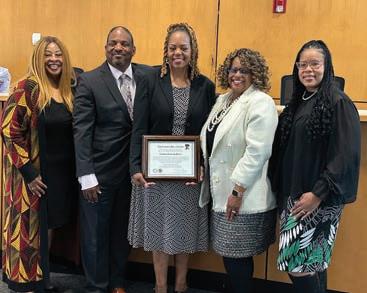












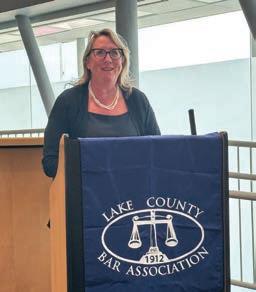






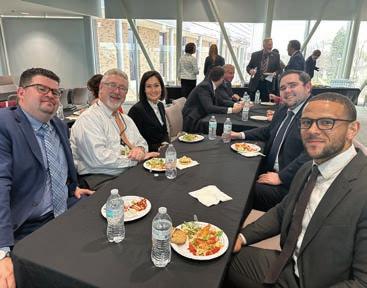

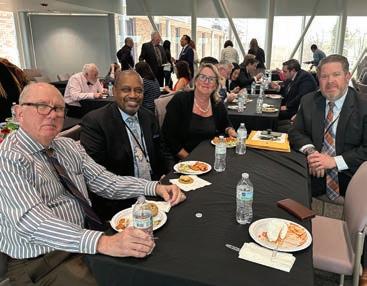








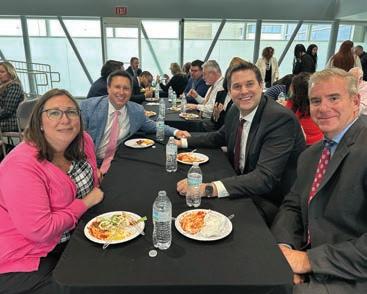



Eleanor Roosevelt once wisely said, “Life is what you make it. Always has been, always will be.” This rings true for membership in the Lake County Bar Association (LCBA) as well. While numbers ofer strength, an active and engaged membership is the lifeblood of any thriving volunteer driven organization. Beyond providing avenues for professional growth, continuing legal education, and networking, the LCBA cultivates a sense of community. It serves as a platform for legal professionals committed to the law to connect with kindred spirits who share their values and dedication to service. As membership renewal notices are soon to arrive, I urge you to continue your journey with the LCBA.
June marks the beginning of a new board of directors’ term and brings leadership changes. On June 6, 2024, we will witness the inauguration of Danny Hodgkinson as the new LCBA President during an Installation Dinner at Lake Forest Sportscars, Ltd. I encourage you to attend. We are also actively preparing
for the commencement of a new program year, bringing about leadership transitions within some of our committees. I am appreciative of those who have stepped up to assume these pivotal roles, and I eagerly anticipate the strides they will make in the year ahead.
Amidst these transitions, it is important to ofer our gratitude. I personally thank all who have served as committee chairs. Balancing professional obligations with personal life is no small feat, and undertaking a volunteer leadership role demands considerable time and dedication. The LCBA stands fortifed owing to the commitment of our committee chairs, and I express heartfelt gratitude for their contributions. A special acknowledgment is due to Karen Levi for her instrumental role in the successful launch of the Juvenile Law committee in January. Moreover, my deepest appreciation goes out to all who presented at seminars, committee meetings, or
 BY GREG WEIDER EXECUTIVE DIRECTOR
BY GREG WEIDER EXECUTIVE DIRECTOR
CLE events this past year. Your invaluable insights and willingness to share knowledge are truly commendable.
I render sincere thanks to the trustees who served on the Foundation Board for their steadfast commitment and philanthropic endeavors in support of the legal community. As four members of the Lake County Bar Foundation (LCBF) Board of Trustees prepare to step down, I ofer my gratitude to Jennifer Ashley, Michael Ori, John Quinn Sr., and Louise Hayes for their commitment to the philanthropic mission of the LCBF.
Acknowledgment is also due to the LCBA board of directors for their service to our organization. I hold their contributions in the highest regard, and I wish to express appreciation to outgoing LCBA President
Katharine Hatch for her leadership. Her tireless eforts demanded substantial time and energy, and I am deeply grateful for her collaboration and guidance. As three members of the LCBA Board of Directors prepare to conclude their governance duties, I extend gratitude to Tara Devine, Sarah Raisch, and Richard Gellersted for their dedication to the LCBA.
Ultimately, the strength of our community lies in collective action. Futurist and author Brian Solis poignantly reminds us that “Community is much more than belonging to something; it’s about doing something together that makes belonging matter.” An engaged Lake County Bar Association is indispensable for nurturing a robust legal community. Your active participation is integral to our shared success.
e LCBA Lawyer Referral Service (LRS) is a valuable member bene t as well as a public service. LRS provides member attorneys with an opportunity to build business through client referrals. e service bene ts the public by helping callers quickly nd an attorney in the area of law in which they need help.
e LRS program is designed to assist persons who are able to pay normal attorney fees but whose ability to locate legal representation is frustrated by a lack of experience with the legal system, a lack of information about the type of services needed, or a fear of the potential costs of seeing a lawyer.
Cost is only $200 annually for a Standard listing or $350 for a Premium listing. Download the application at www.lakebar.org/page/LRS or contact the LCBA o ce for more information.
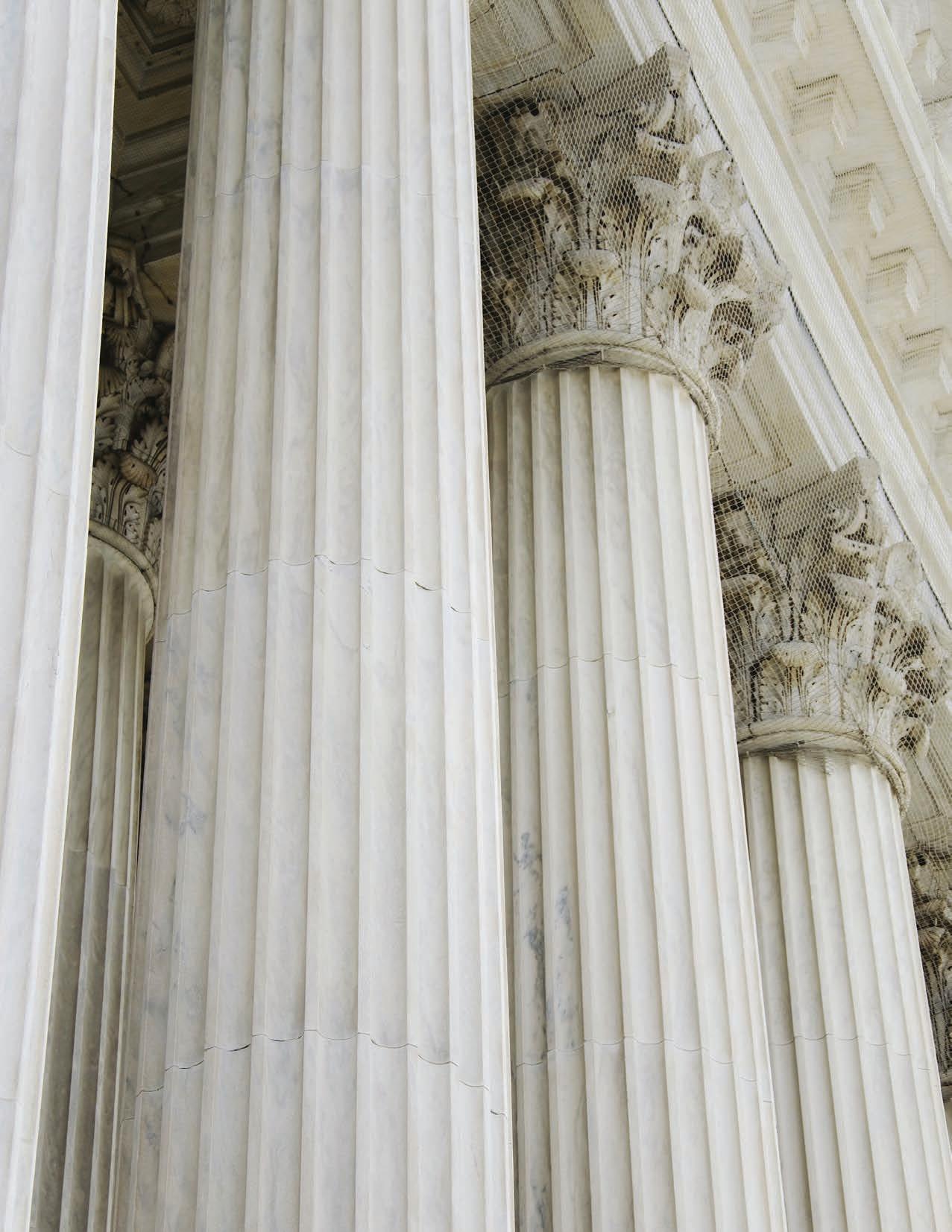
• Administrative
• Bankruptcy
• Commercial
• Consumer
• Employment
• Environmental
• Estate Planning, Wills, Trusts and Probate
Visit lakecountylawyer.info for a complete list of available categories.

• RSVP to a meeting at www.lakebar.org.
• Meetings subject to change. Please check your weekly e-news, the on-line calendar at www.lakebar.org or call the LCBA Offce @ (847) 244-3143.
• Please feel free to bring your lunch to the LCBA offce for any noon meetings. Food and beverages at restaurants are purchased on a individual basis.
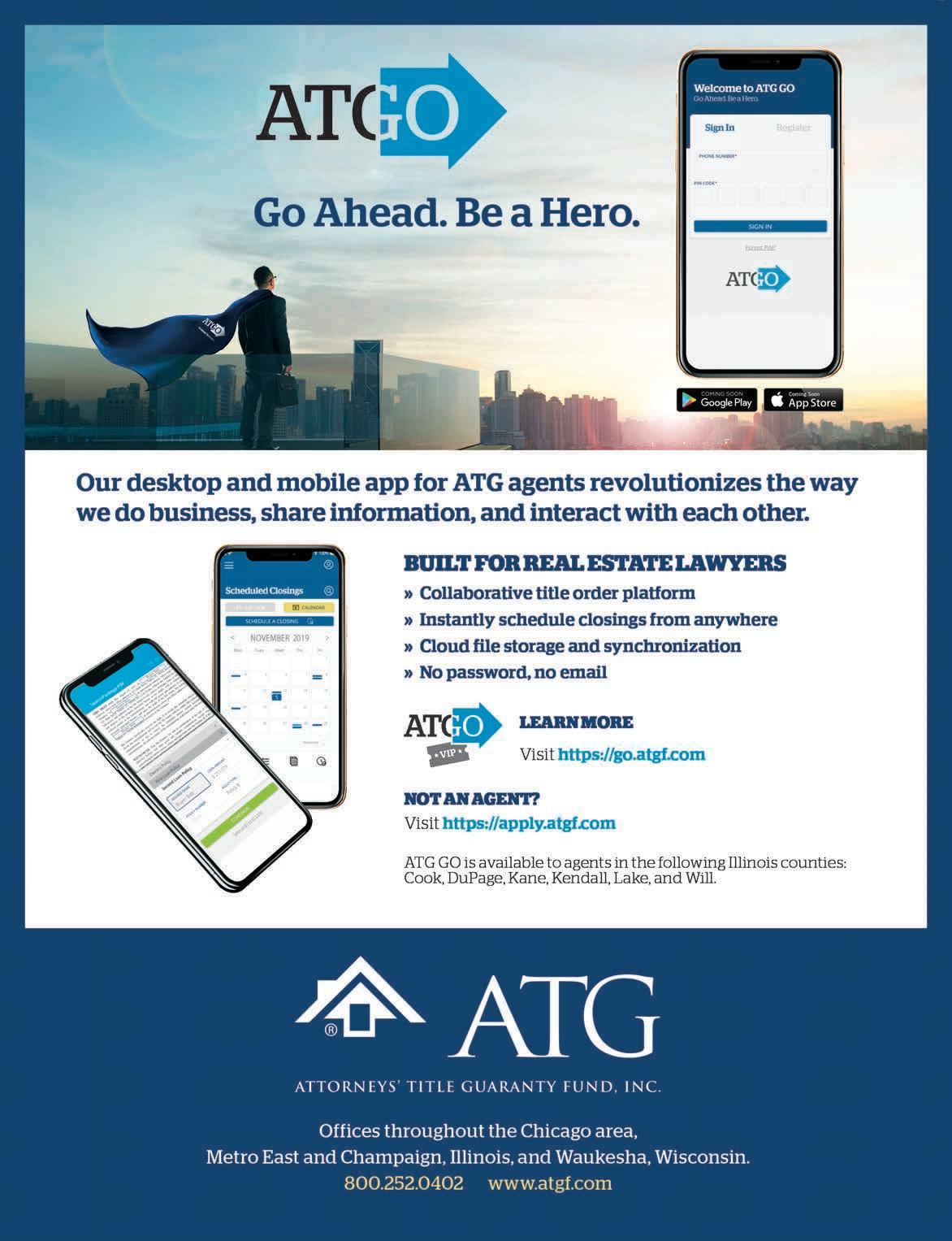
300 Grand Avenue, Suite A Waukegan, IL 60085
Tel: 847-244-3143
Fax: 847-244-8259
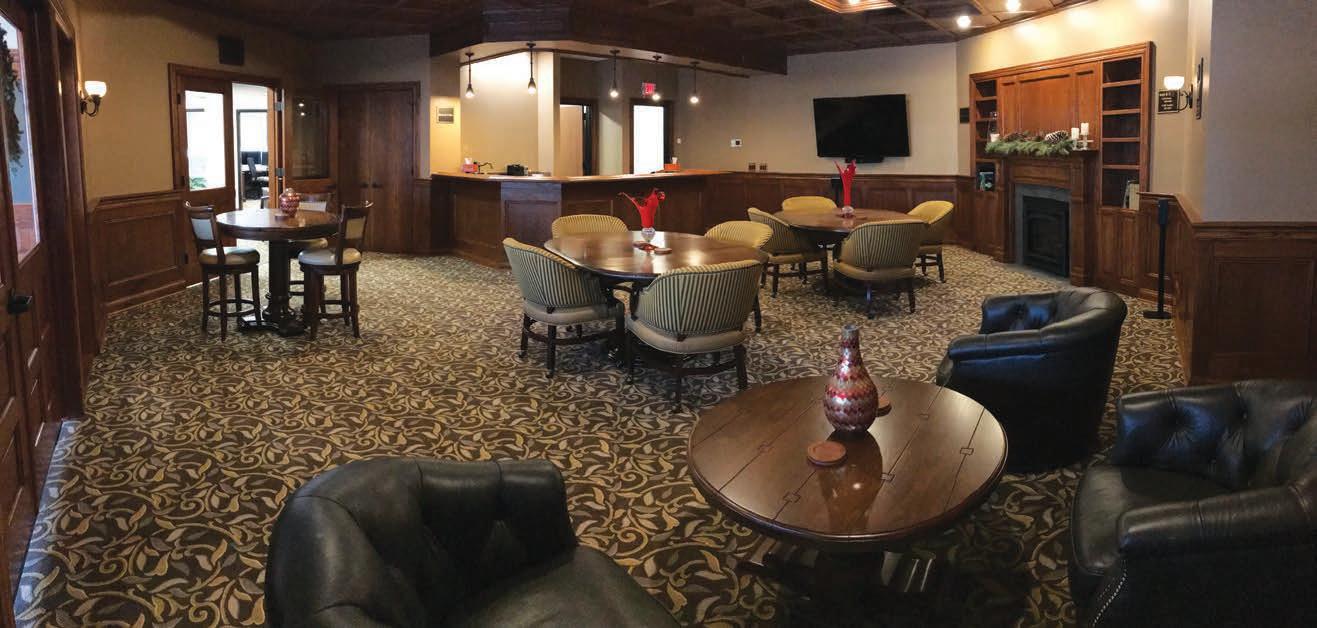
OPPORTUNITIES
LCBA Member Receptions will generally be held on the 4th Thursday of every month.
Your $500 sponsorship includes:
• Recognition in advertising before the event and on signage at the event
•Reception from 4:30 – 6:30 p.m.
• Complimentary beer and wine. Upgrades available for additional fee.
Contact info@lakebar.org to add your name to a reception.